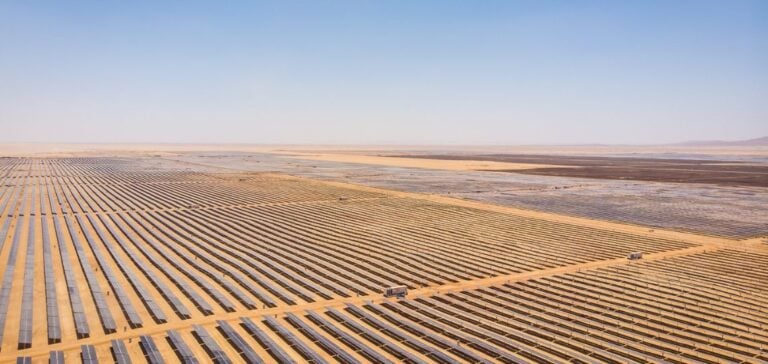Scatec ASA signs a 25-year Power Purchase Agreement (PPA) with Egyptian Electricity Transmission Company (EETC) for a hybrid solar and battery storage project in Egypt.
This project, the only one of its kind in the country, includes a capacity of 1 GW of solar production and 100 MW/200 MWh of storage.
The contract, denominated in US dollars, aims to secure energy supply while stabilizing the grid.
This type of partnership underlines the country’s growing commitment to diversifying its energy sources and integrating storage solutions, crucial for managing the intermittency of renewable energies.
With this project, Egypt strengthens its position in the region as an emerging market for investment in renewable energy.
The partnership with Scatec, which will handle engineering, procurement and construction (EPC), as well as asset management (AM) and operation & maintenance (O&M), reflects an increasingly proactive strategy to meet the growing demand for green energy.
The project aims to reduce the country’s dependence on fossil fuels and offer more stable and efficient solutions through the integration of storage technologies.
Impact of the project on the energy transition and the power grid
The hybrid solar and battery storage project, scheduled to start up in 2025, will have a significant impact on the stability of the Egyptian power grid.
By using battery storage, the project will smooth out fluctuations in solar production and ensure constant availability of electricity, even during periods of low sunshine or at night.
This innovative approach is particularly relevant in a country where energy demand is constantly on the rise, due to population growth and industrial development.
The integration of 100 MW of battery storage capacity into this project marks an important milestone.
The 200 MWh capacity is designed to provide additional stability to the grid, limiting the need for costly and polluting peaking power plants.
It could also encourage other industry players to explore similar solutions, particularly in emerging markets where energy infrastructure challenges require innovative and resilient approaches.
Financing and risk management to ensure project success
The project’s financing is based on concessional financing mechanisms obtained through a mandate letter signed with several development finance institutions.
These funds will help secure the project and minimize the risks associated with large-scale energy infrastructures.
This type of financing, often accompanied by preferential terms, is essential for projects of this scale, as it reduces the financial burden while maximizing long-term profitability.
Drawing on its previous experience and current projects, Scatec will oversee the entire project lifecycle, from construction to operation.
This holistic approach guarantees optimized costs and reduced operational risks, while ensuring constant production of clean energy to meet Egypt’s growing needs.
Implications for industry players and regional outlook
The success of this project could have repercussions for the entire energy sector in Egypt and beyond.
As the first project of its kind in the country, it could serve as a model for other similar initiatives in the Middle East and North Africa region, where solar potential is enormous but under-exploited.
Investments in hybrid projects combining solar power and storage could become a standard way of meeting diversified energy needs while supporting the region’s decarbonization objectives.
The involvement of public and private players in this project underlines the growing importance of partnerships to develop modern, sustainable energy infrastructures.
Through projects of this kind, Egypt could strengthen its position as a regional hub for renewable energies, attracting capital and technology while fostering regional cooperation.






















